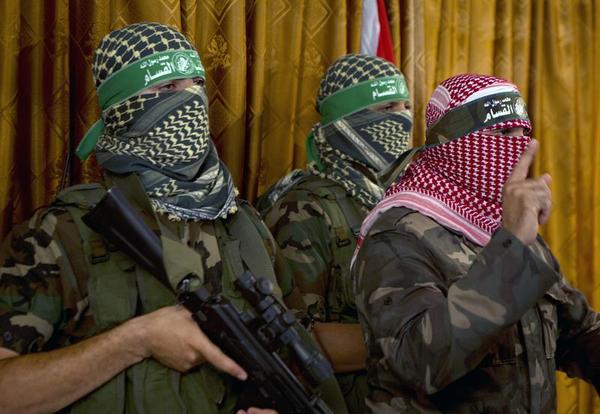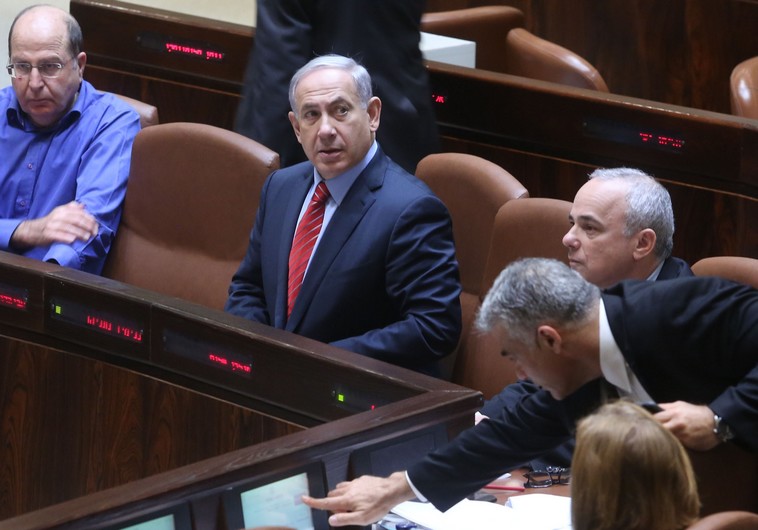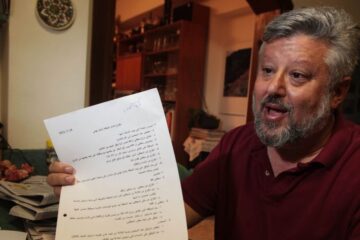An interesting development occurred recently in Gaza that was not reported in the Israeli or Western media at all. Indeed, these developments went almost unnoticed in official Palestinian media as well.
For the first time in decades, a true representative democratic election was held within a Palestinian political party. The outcome of the election was a great surprise to almost everyone, especially to those who are completely out of touch with the Palestinian public.
The Democratic Reform Bloc, a faction within the Fatah movement headed by ousted Palestinian political leader Mohammed Dahlan – who resides in Abu Dhabi, United Arab Emirates – elected representatives of its 100,000 paid and registered members in Gaza. One thousand people were elected to represent the full membership in the election for the leadership council of the movement. In mid-December, a council of 65 people was elected to lead the faction, in an effort to reshape Palestinian politics and to lead the Palestinian people in Gaza, and eventually in the West Bank, to a new future.
In August, Dahlan convened in Abu Dhabi members of the leadership of Fatah in Gaza who support him and who are in opposition to the Palestinian leadership of Mahmoud Abbas. He told these leaders that, after Abbas canceled the legislative election that was supposed to take place in May, the time had come for the Democratic Reform Bloc to take leadership positions.
Dahlan insisted that a democratic election take place, and he insisted that the members of the old guard – former officers from the Gaza Preventive Security force who were loyal to him – would not participate. Dahlan said that it was time to allow the new generation of young leaders in Gaza to stand up and face the public in elections. Full, free democratic elections are not possible in the Hamas-controlled Gaza strip, but an election carried out among the 100,000 Democratic Reform Bloc members is possible.
The 1,000 representatives voted for candidates to represent all of Gaza. The election was not by district but for the entire Gaza Strip. Of the 65 people elected, 30% were women. There was no set quota for women, it was the natural outcome of the election. This is really phenomenal, considering the conservative and patriarchal society of Gaza, which has been distanced from the world for more than 20 years. Forty percent of those elected are under 45 years old, and there were no winners above age 65. The two highest number of votes were received by two young women.
The highest vote-getter, receiving 505 votes, was Ataf Hamran, a young activist from Rafah who is a well-known open critic of Hamas. Hamas arrested her in 2018 for her harsh criticism. Hamran attacked Hamas on social media stating that Hamas’s rockets have brought no benefit to Palestine, only harm to all the people in Gaza. It is very unusual to arrest a woman for political activity in Gaza. Hamran was eventually released from Hamas’s prison, only after going on a hunger strike.
This kind of opposition to Hamas gains trust among young voters in Gaza. Fifty-one of the 65 people elected have university degrees, and 11 hold PhDs. The voters of Gaza from the Democratic Reform Bloc elected intelligent educated young people.
“This council has the spirit of Palestine, the real spirit, reflecting the street, not the Palestinian Authority or the Palestinian security forces,”
said one of the people connected with the Democratic Reform Bloc.
Another member in Gaza noted that “Hamas has an internal election for their leadership, but democracy for them stops there. They don’t want to spread democracy. They have made no moves to crystallize democratic values, not Hamas and not the Palestinian Authority, which only cancels elections. This is the only grassroots, democratic political movement in Palestine today, and it is a sign of the change that must happen.”
On December 18, Dahlan congratulated the representatives of the movement in Gaza:
“You have proven, through your participation in this democratic experience, the extent of your possession of democratic and political awareness, and civilized behavior, and your superior ability to manage and organize matters. And you have effectively contributed to the political and democratic process to build the movement, to be a role model.
“Congratulations to you for your success and the great positive transformation, which inaugurated the beginning of a new and important phase for the future of the national and democratic movement. We hope that this experience will contribute to creating a dynamic political movement within Palestinian society, to build all its institutions on democratic foundations.”


